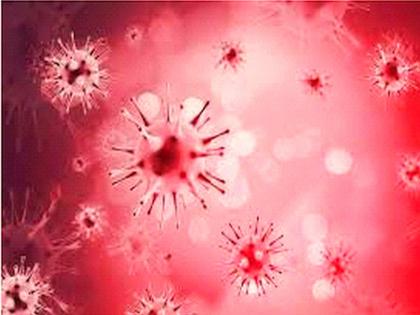COVID-19 Surge in Asia: India Reports 257 Active Cases Amid Spread of New Omicron Sub-Variants
By Lokmat English Desk | Updated: May 20, 2025 16:12 IST2025-05-20T16:09:53+5:302025-05-20T16:12:07+5:30
A fresh wave of COVID-19 is spreading across parts of Asia, with infections increasing in places like Singapore, Hong ...

COVID-19 Surge in Asia: India Reports 257 Active Cases Amid Spread of New Omicron Sub-Variants
A fresh wave of COVID-19 is spreading across parts of Asia, with infections increasing in places like Singapore, Hong Kong, and Thailand. JN.1, LF.7, and NB.1.8 are the novel Omicron sub-variants that are primarily responsible for the surge. What is alarming, though, is that official data indicates that there are currently 257 ongoing COVID-19 cases in India (As of May 20), the majority of which are minor and do not require hospital treatment. Since May 12, Kerala has reported the highest number of new infections (69 cases), followed by Tamil Nadu (34 cases) and Maharashtra (44 cases). Karnataka (8), Gujarat (6), Delhi (3), and Haryana, Rajasthan, and Sikkim each had one new case, among other states.
Two recent COVID-19-related deaths were reported at King Edward Memorial (KEM) Hospital in Mumbai. Doctors stated both patients had major health concerns, reported Hindustan Times. One was a 54-year-old cancer patient, and the other was a 14-year-old with nephrotic syndrome-related renal failure.
Also Read: Maharashtra: State Cabinet Approves New Housing Policy with Slogan 'My Home, My Right'
Health professionals have frequently expressed concern that India may experience a rise in instances as a result of the population's declining immunity. As of May 19, 93 COVID-19 cases were listed as active by the Ministry of Health and Family Welfare. The symptoms of this new COVID-19 variant are:
- Sore throat
- Fever
- Runny or blocked nose
- Dry cough
- Headache
- Fatigue
- Loss of taste or smell
According to health officials, the JN.1 variant's symptoms are essentially the same as those of previous Omicron strains. Additionally, compared to earlier waves, some patients have reported feeling more exhausted. The majority of cases are minor and treatable at home with rest and hydration. However, factors like age, pre-existing medical disorders, and immune levels can all affect how severe an illness is.
Doctors encourage individuals to exercise caution because pre-monsoon ailments are already plaguing sections of the nation. It is advised that anyone with flu-like symptoms stay away from crowds, wear masks in public, and be tested if necessary. Health professionals around the world are emphasising the value of proper cleanliness and early medical consultation to lower the risk of serious sickness as the virus continues to mutate.
Open in app